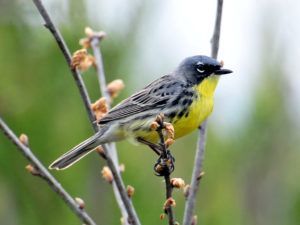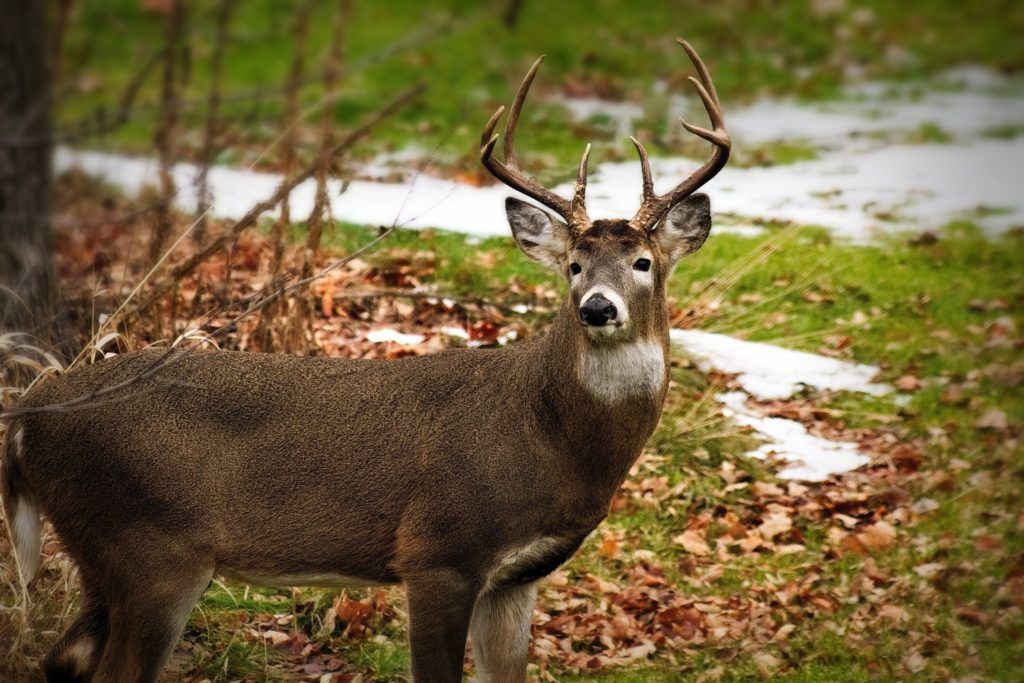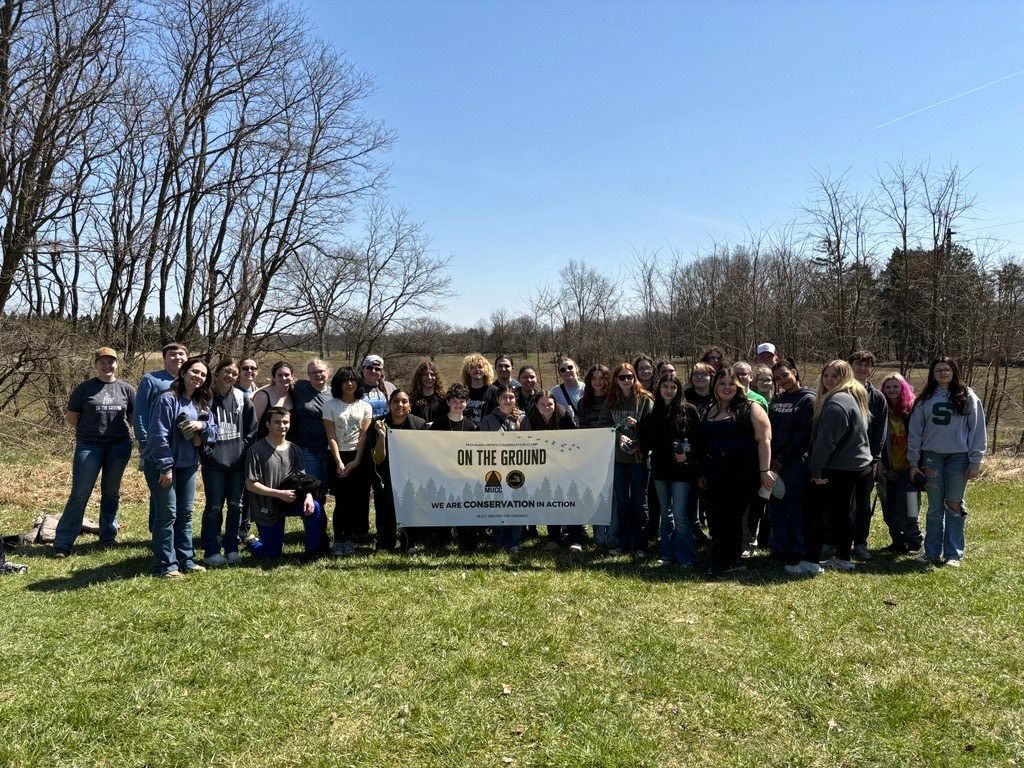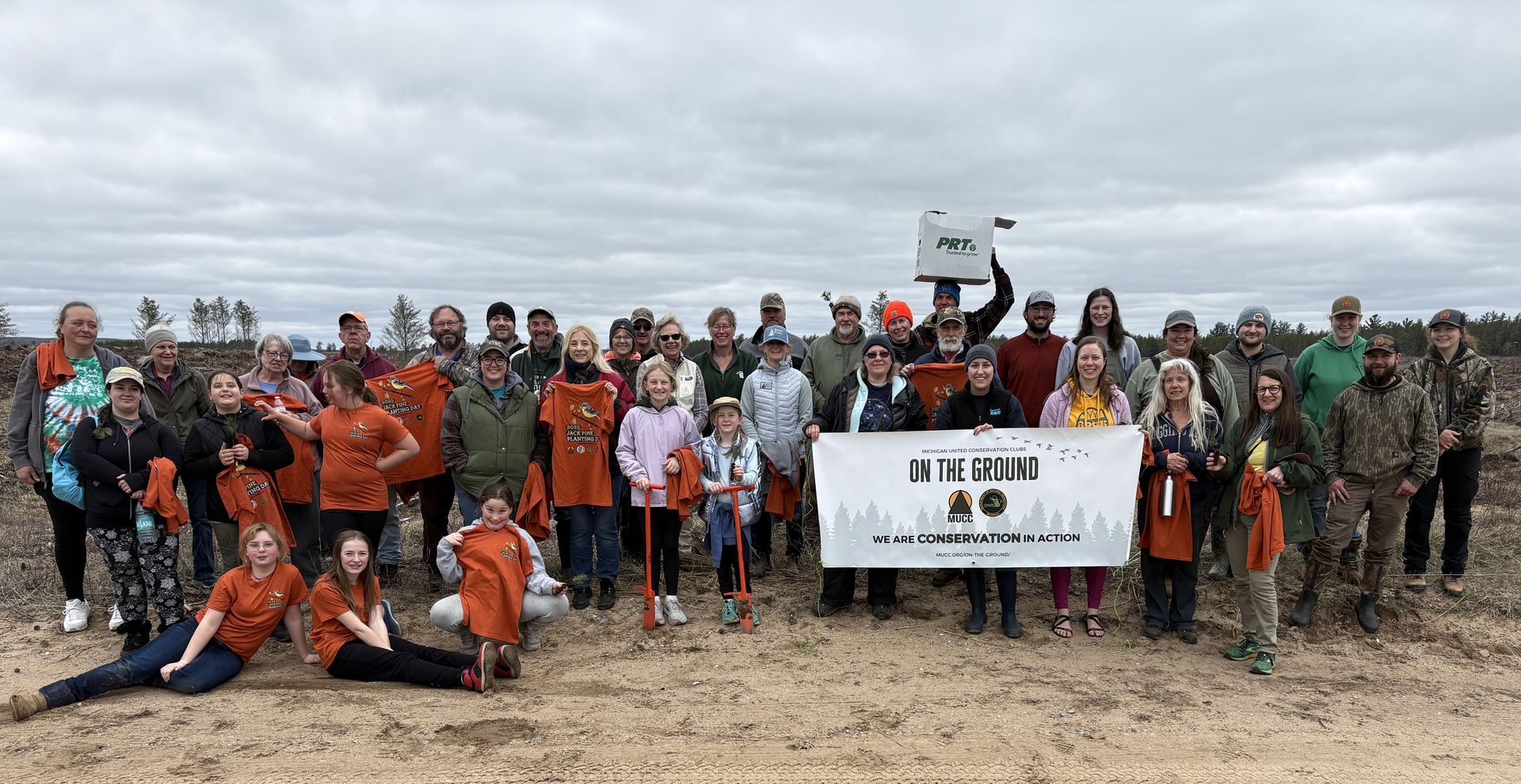Join Us for a Day of Planting Jack Pines to Benefit Kirtland’s Warblers
On Saturday, May 7, 2022, Kirtland’s Warbler Alliance (KWA) is hosting a Jack Pine Planting Day in partnership with MUCC’s On the Ground (OTG) program and Huron Pines of Michigan. Join us in planting jack pines to improve Kirtland’s warbler habitat at a site in St Helen, MI (Richfield Twp).
Please register for this event HERE.

A Kirtland’s warbler in breeding plumage.
In the mid-1980s, the Kirtland’s warbler was on the brink of extinction with fewer than 200 breeding pairs due to lack of heathy jack pine habitat which is critical to this rare warbler. However, through active ecosystem management by state and federal agencies, as well as habitat restoration work by local non-profit organizations like KWA, Kirtland’s warbler numbers have been on the rise.
The continued success of this elusive warbler depends on the growth and development of productive jack pine forests. Jack pine ecosystems depend on the presence of fire. Heat from wildfires cause the jack pine’s cones to open and release seeds that the wind spreads over the landscape. This is where active management comes in – prescribed burns followed by jack pine plantings can restore and enhance critical warbler habitat. Not only does this process benefit the Kirtland’s warbler, but it also creates healthy habitat for white-tailed deer, wild turkey and small game.
You might be wondering why the Kirtland’s warbler depends so heavily on jack pines in particular. The main reason is that Kirtland’s warblers are ground nesters and they can find critical nesting sites among the bases of jack pine trees where the soil is well-draining and protected from flooding. Come join us in planting jack pines to improve Kirtland’s warbler habitat in northern lower Michigan! To learn more about the Kirtland’s warbler and its natural habitat, please click here. To register for this event, click HERE.
The post Join Us for a Day of Planting Jack Pines to Benefit Kirtland’s Warblers appeared first on Michigan United Conservation Clubs.
Recent Posts



